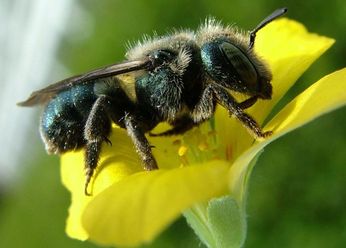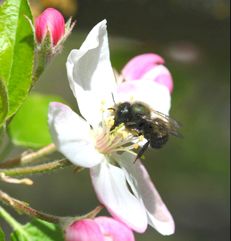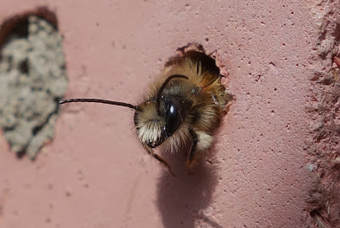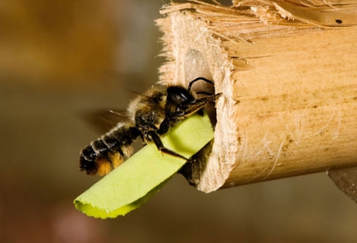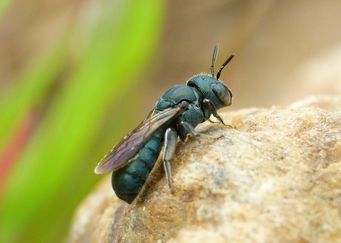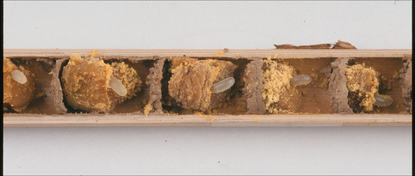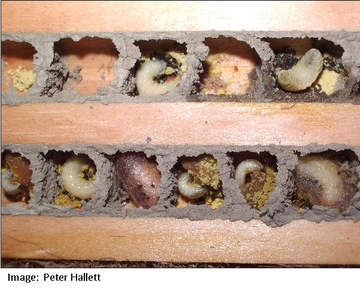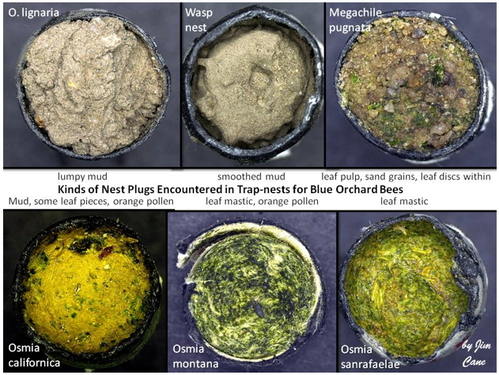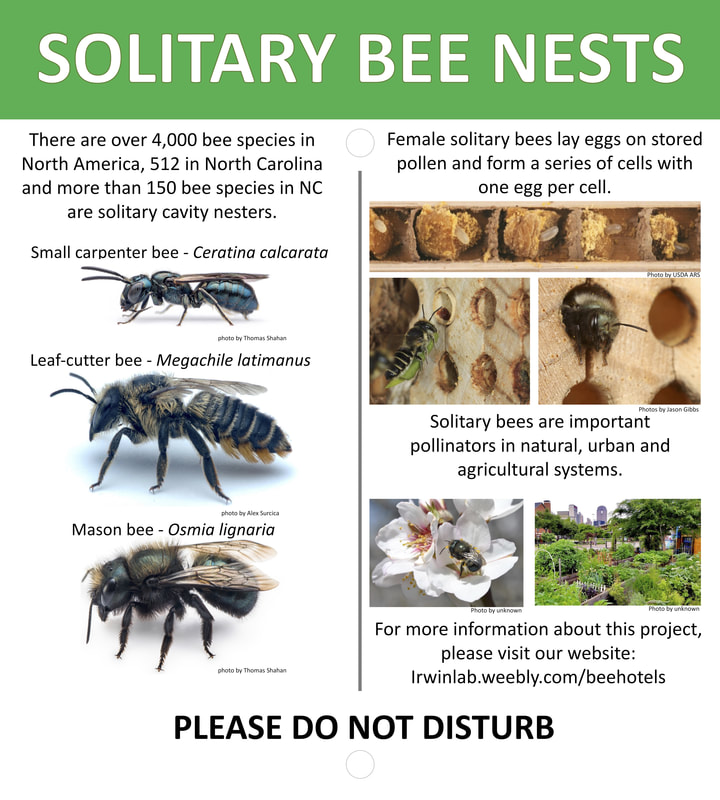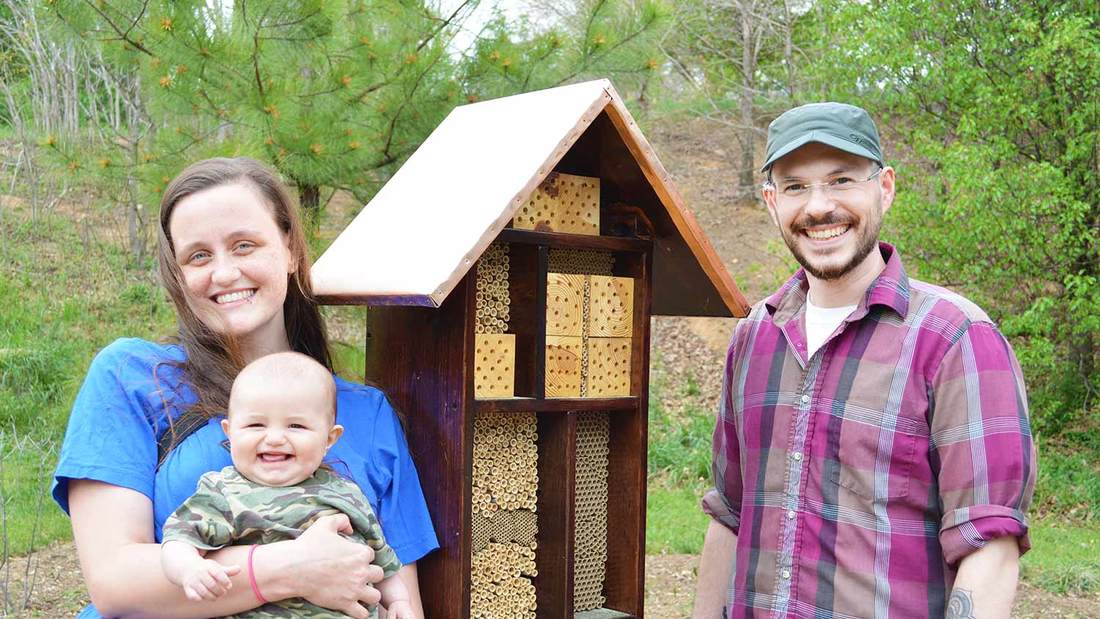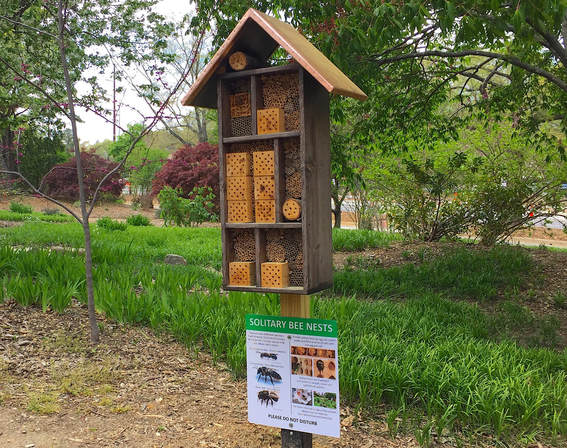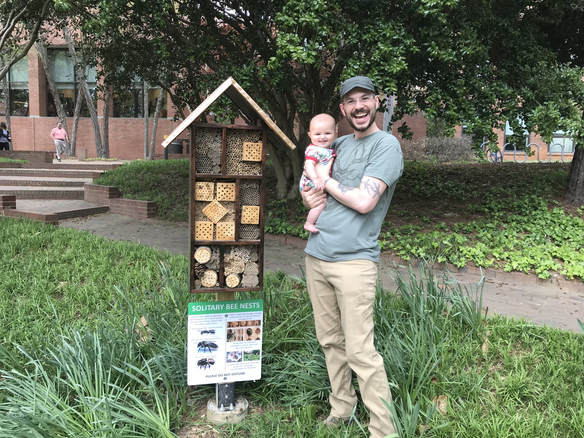Solitary Bee Hotels AT NCSU
Video by Carla Davis
Meet the bees
Mason Bees (OSMIA)Leafcutter Bees (MEGACHILE) |
Solitary bees are important pollinators that use a wide range of specially adapted pollen-carrying structures on their bodies to collect provisions for their offspring. Most solitary bees nest either in the ground or in cavities in hollow reeds or logs.
The female typically builds a series of cells in which a single egg is laid and provisioned with a store of pollen and nectar. Each egg transitions to a larva, a pupa, and then an adult inside of their natal cell, at which point they emerge and begin the cycle again. Cavity nesting solitary bees, which make up a large proportion of the 500 species in North Carolina, perhaps have a significantly greater risk of decline due to extensive deforestation and landscaping practices that remove nesting habitat. With the support from the North Carolina State University Sustainability Fund (2017), we designed and built three hotels (see below) across NC State's campus to promote bee habitat and public outreach. A special thanks to Crown Bees for providing the nesting material. Read more here Small Carpenter Bees (CERATINA) |
What's inside?
Hidden inside the holes and reeds are beautifully organized row of eggs. Each cell is given the perfect amount of pollen and nectar to grow and sustain them until the following year when the next generation emerges.
Why a hotel?
|
The bee hotels provide:
|
